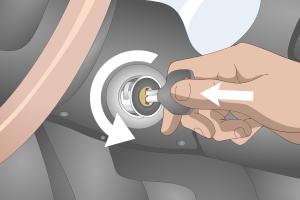Step-by-Step Guide: How to Change a Lock Cylinder Easily

-
Quick Links:
- Introduction
- Understanding Lock Cylinders
- Tools Required
- Step-by-Step Guide
- Common Issues When Changing a Lock Cylinder
- Expert Insights
- Case Studies
- FAQs
Introduction
Changing a lock cylinder might seem like a daunting task, but it is a manageable DIY project that can enhance your home security. Whether you’ve lost your keys, moved into a new house, or simply want to upgrade your locks, knowing how to change a lock cylinder can save you time and money. In this comprehensive guide, we will walk you through the entire process, ensuring you feel confident tackling this task on your own.Understanding Lock Cylinders
Lock cylinders are the core components of many locking mechanisms. They house the pins that align with the key to allow it to turn and unlock the door. Understanding the different types of lock cylinders—such as single-cylinder, double-cylinder, and Euro cylinders—can help you choose the right replacement for your needs.Types of Lock Cylinders
- Single Cylinder: Operated by a key from the outside and a thumb turn from the inside.
- Double Cylinder: Requires a key to operate from both the outside and inside.
- Euro Cylinder: Common in European locks, often used in uPVC doors.
Tools Required
Before you begin, gather the following tools to ensure a smooth process:- Flathead screwdriver
- Phillips screwdriver
- Pliers
- Replacement lock cylinder
- Measuring tape
- Lubricant (optional)
Step-by-Step Guide
Step 1: Remove the Door Handle
Start by removing the screws that secure the door handle. Use your flathead or Phillips screwdriver, depending on the screws’ type. Once removed, detach the handle carefully.Step 2: Access the Lock Cylinder
With the handle removed, you should be able to see the lock assembly. Locate the retaining screw that holds the lock cylinder in place and remove it.Step 3: Extract the Lock Cylinder
Gently pull the lock cylinder out from the door. If it seems stuck, you may need to wiggle it gently or use pliers to help pull it out.Step 4: Measure the Old Cylinder
Before purchasing a new cylinder, measure the old one to ensure you get the correct size. Measure the length from the center of the mounting hole to the ends of the cylinder.Step 5: Install the New Lock Cylinder
Insert the new lock cylinder into the door, ensuring it fits snugly. Once in place, replace the retaining screw to secure it.Step 6: Reattach the Door Handle
Align the door handle back into place and secure it with screws. Ensure it operates smoothly before closing the door.Common Issues When Changing a Lock Cylinder
While changing a lock cylinder is straightforward, you may encounter a few common issues: - **Lock Cylinder Won't Fit:** Ensure you have the correct measurements. - **Retaining Screw Issues:** If the screw is stripped, you may need to use a new screw or a slightly larger one. - **Difficulty with Door Handle Alignment:** Make sure all parts are aligned correctly before tightening screws.Expert Insights
Locksmith experts recommend using high-quality lock cylinders for better durability and security. Additionally, always lubricate your locks regularly to prevent them from sticking.Case Studies
- **Case Study A:** A homeowner upgraded their locks after moving into a new neighborhood. By changing the lock cylinders themselves, they saved approximately $150 on locksmith fees. - **Case Study B:** A small business owner reported increased security after replacing outdated lock cylinders with modern smart locks.FAQs
1. How long does it take to change a lock cylinder?
Most homeowners can complete the process in about 30 minutes to an hour.2. Do I need a locksmith to change a lock cylinder?
No, it is a task that can be performed by most homeowners with basic tools.3. What if my lock cylinder is stuck?
Try lubricating it with a spray lubricant and gently wiggling it out.4. Can I change a lock cylinder without removing the door?
Yes, most cylinders can be changed without removing the door, as long as you can access the lock mechanism.5. Are all lock cylinders the same size?
No, lock cylinders come in various sizes and styles, so it's important to measure your existing cylinder.6. How often should I change my lock cylinder?
It's recommended to change your lock cylinder every 5-7 years or after a security breach.7. What tools do I need to change a lock cylinder?
You will need screwdrivers, pliers, a replacement lock cylinder, and possibly a lubricant.8. Can I change a lock cylinder on a smart lock?
Yes, but the process may differ slightly depending on the smart lock model.9. Is it safe to change my own lock cylinder?
Yes, as long as you follow the proper steps carefully, it is safe to do it yourself.10. What if I lose my keys before changing the lock cylinder?
You may need to call a locksmith to gain entry if you cannot unlock the door.Random Reads
- How to clean laptop keyboard
- How to clean hardwood floors with vinegar
- How to show hidden files and folders on a mac
- How to shorten google maps urls
- How to get rid of trojan horses
- Delete temporary prefetch files
- Delete tables in word
- How to use controller with genshin impact
- How to use chemical drain cleaner
- Fix no signal ps4